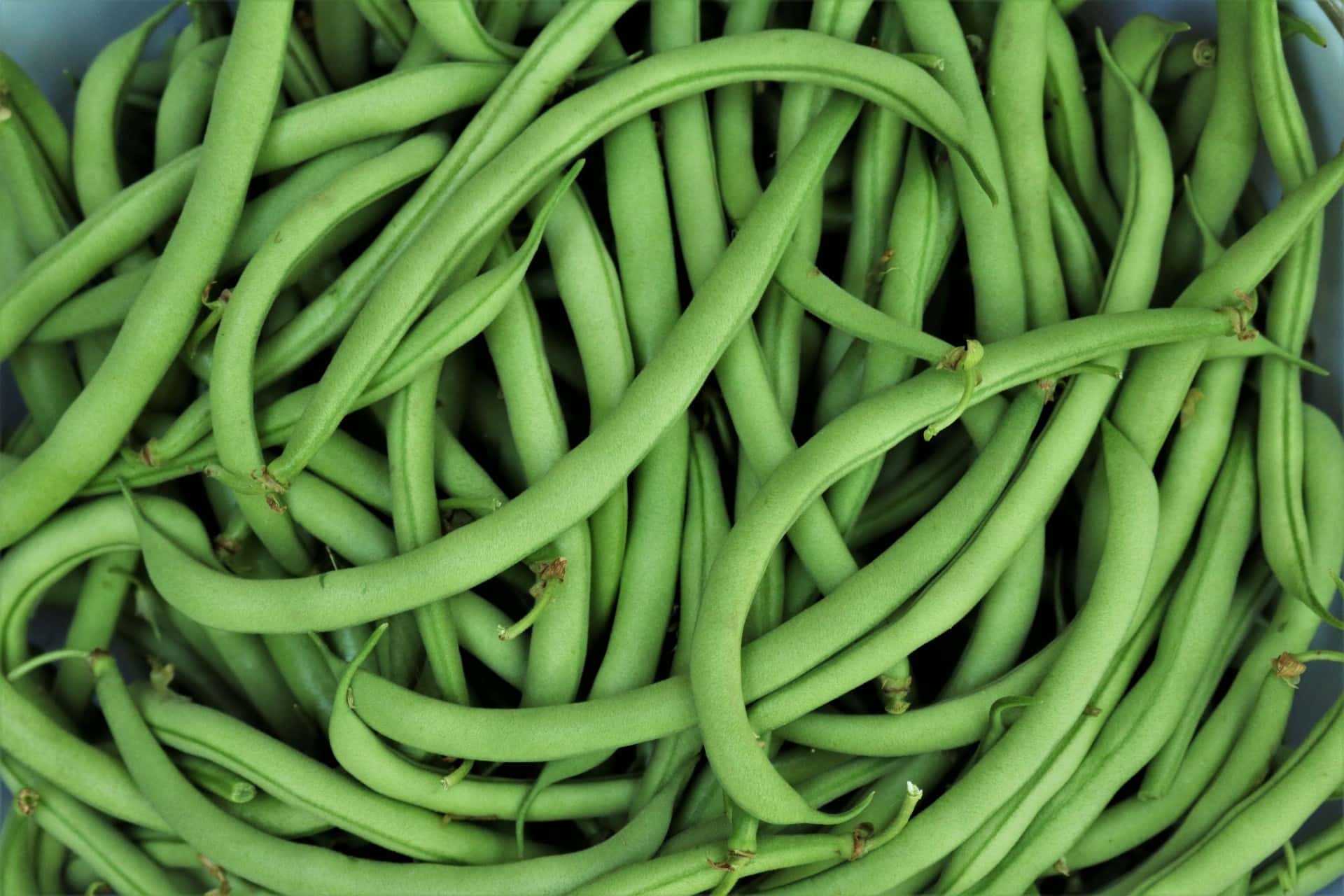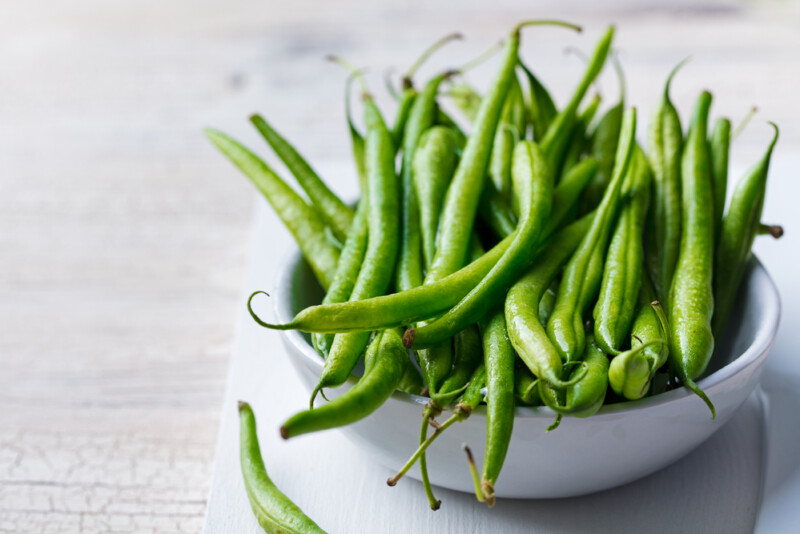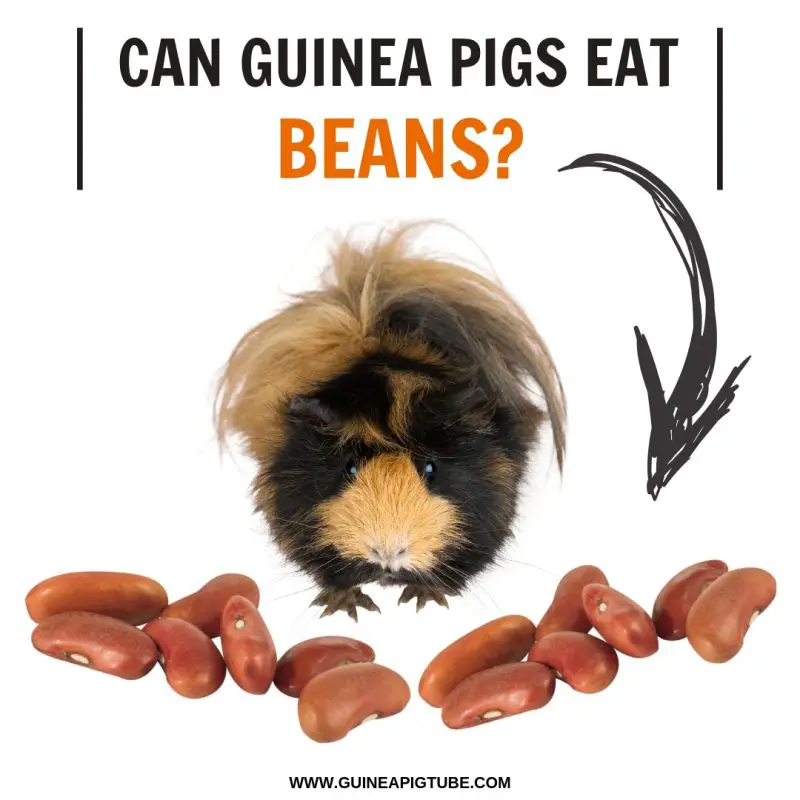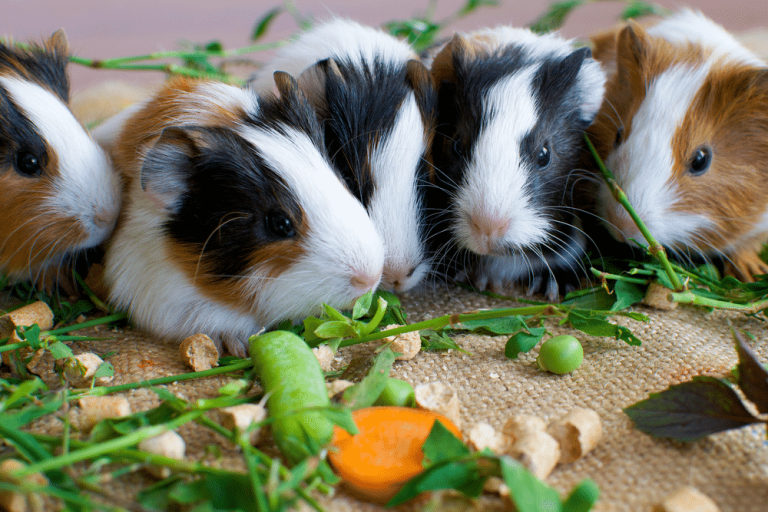
Can Guinea Pigs Eat Green Beans? All Pet Care
Green beans are healthy for guinea pigs because they contain vitamins C, K, and calcium, nutrients essential to a cavy's health. According to the GuineaDad blog, piggies need 10 - 50 mg of vitamin C daily, with pregnant females needing a little more. Since their little bodies don't produce vitamin C, they must get it from what they eat.

GuineaDad Food Blog Can guinea pigs eat green beans?
Yes, guinea pigs can eat green beans as part of their diet, but they should be given in moderation due to their high fiber content. Green beans can be a good source of vitamin C and fiber for guinea pigs, but they should be introduced gradually to avoid digestive issues. It's important to wash the green beans thoroughly and remove any spoiled.

Can Guinea Pigs Eat Green Beans? What You Need to Know! Pet Keen
Well, the short answer is yes, they can! Green beans are actually a great addition to a guinea pig's diet because they're low in sugar and high in fiber. However, before you start feeding your guinea pig green beans, there are a few things you should know. For example, while green beans are safe for guinea pigs to eat, they shouldn't be.

Can Guinea Pigs Eat Green Beans? Are they a staple food? petsKB
Guinea pigs can eat green beans; they are low in calories and rich in vitamin C and other minerals. They are also a rich source of folic acid and fiber which is essential for guinea pigs. However, exercise caution since the high phosphorus and calcium in green beans can lead to multiple health issues. To get the most out of the green beans.

Can Guinea Pigs Eat Green Beans? Are they a staple food? petsKB
What other benefits do green beans provide for your guinea pig? Green beans contain a good amount of fiber, which will help regulate your piggy's digestive system! They have around 1.8 g in a 100 g portion. What are the downsides about green beans for guinea pigs? Unfortunately, guinea pigs' little organs aren't great at absorbing calcium.

Can Guinea Pigs Eat Green Beans? 15 Healthy Alternatives! MRP
Find the deal you deserve on eBay. Discover discounts from sellers across the globe. Try the eBay way-getting what you want doesn't have to be a splurge. Browse Guinea pig feeder!

Can Guinea Pigs Eat Green Beans? Are they a staple food? petsKB
Green beans should only be given as a treat-never as daily food; 3 to 4 times a week is plenty. A good serving size is 1 or 2 beans. If you stick to these guidelines, green beans can help ensure that your guinea pig gets the nutrition it needs to thrive. In conclusion, green beans are a healthy and nutritious snack for guinea pigs.

Can Guinea Pigs Eat Green Beans? (Benefits, Risks, Serving Size & More
As a rule of thumb, green beans are safe and healthy for guinea pigs in moderation. They contain a variety of great nutrients for piggies. However, limit green beans to 2-3 times a week in small quantities. Green beans contain a nice variety of nutrients for your guinea pig. Below I'll cover all the benefits of feeding string beans to your.

Can Guinea Pigs Eat Green Beans? All You Need To Know
Yes, guinea pigs can eat green beans as part of their diet. Green beans provide important vitamins and minerals for their overall health and well-being. They are a great source of fiber, which helps in improving digestion and preventing certain digestive issues in guinea pigs. Additionally, green beans are low in calories and can be.

Can Guinea Pigs Eat Green Beans? » Petsoid
Guinea pigs can eat green beans, and they are a great addition to their diet because they contain many essential vitamins and minerals such as vitamin A, vitamin K, vitamin C, iron, magnesium, phosphorus, potassium, zinc, copper, but also calcium, which is not such a great thing for guinea pigs. Nonetheless, feeding guinea pigs with green beans.

Can Guinea Pigs Eat Green Beans? (Serving Size, Risks & More)
Yes, green beans leaves are entirely safe for our guinea pigs if we feed it in moderation. Not all plants have edible leaves; however, green beans leaves are edible and can be added to the diet of our guinea pigs. You can provide them with safe tree branches like apple, willow, birch, etc.

Can Guinea Pigs Eat Beans? (Benefits, Risks, Serving Size & More
The 6 Reasons Why Green Beans Are a Healthy Snack for Your Guinea Pig. Packed with fiber and vital vitamins, green beans are one of the healthiest foods you can put on a plate. Here are six reasons to feed them to your pig: 1. Vitamin A. This vitamin supports their core functions and eyesight.

Can Guinea Pigs Eat Green Beans? Vet Explains Pets
No, guinea pigs can't eat yellow beans. Other than green beans, you should avoid feeding any other beans to your piggies. Most other beans contain phytohaemagglutinin - a toxin that's present in the majority of beans and can cause diarrhea, vomiting, or even dehydration. Depending on the amount, it can even lead to life-threatening.

Pin on guinea pig infographic
Guinea pigs can eat green beans but they should consume green beans only 1-2 times per week to avoid potential problems. It contains many good nutrients and essential vitamins like vitamin C which is extremely important for guinea pigs. Also, remember that the guinea pigs can't eat cooked food, so the green beans must only be given.

Can Guinea Pigs Eat Green Beans? (Serving Size & More)
Yes, guinea pigs can eat green beans, and they can provide some nutritional benefits. Green beans are a good source of vitamin C, vitamin K, and fiber, which can help support guinea pigs' digestive and immune systems. However, they should only be fed in moderation as too much can cause digestive upset. It is important to wash the.

Can Guinea Pigs Eat Peas? (Explained!)
Some guinea pigs may be allergic to green beans and experience severe reactions, such as difficulty breathing or swelling of the face, lips, and tongue. Feeding green beans regularly can result in nutritional deficiencies since they are not a complete source of nutrients. Overfeeding green beans can lead to obesity and other health problems.